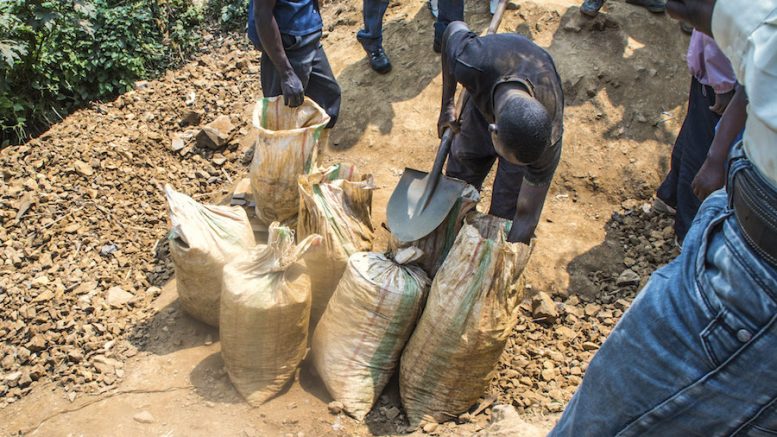Advocacy group Global Witness along with four other civil society organizations said today that the London Bullion Market Association’s (LBMA) responsible sourcing program has failed to ensure that only responsibly-sourced gold, conflict-free and untainted by human rights abuses is traded worldwide.
“We had hoped that September’s release of the LBMA’s first annual Responsible Sourcing Report 2020 would address these concerns,” the organization wrote in an open letter to the LBMA on March 8. “We welcome the report, which provides more detail than previous publications.”
“However, we are concerned that the report does not go far enough in providing information on where gold was actually mined [and] sheds little light on the incident review process and the cases of refiners considered during the reporting period.”
In past years, Global Witness along with other non-profit organizations have raised concerns about specific cases, which they claim remain unsolved.
Last year, the advocacy groups said that Swiss refiner Valcambi SA had bought large amounts of gold from Dubai-based Kaloti Precious Metals Group, which in turn was at risk of having purchased Sudanese conflict gold.
Both Valcambi and Kaloti have denied Global Witness’s findings.
The other case involved India-based refiner MMTC-PAMP, part of another Swiss major, MKS PAMP Group. According to Global Witness MMTC-PAMP processed gold from a mine in Tanzania where there had been allegations of human rights abuses.
The LBMA, the world’s most influential gold market authority, found both refiners to be fully compliant with its responsible sourcing standards.
“The serious weaknesses exposed by civil society groups means those who buy the gold, including Apple and Tesla, or jewellery customers, cannot have confidence that the LBMA’s Good Delivery gold is free of human rights abuses,” Anneke Van Woudenberg, executive director of corporate watchdog RAID, said in a statement.
A new law came into full force across the European Union in January this year – the Conflict Minerals Regulation. It focuses on four minerals – tin, tantalum, tungsten and gold – which have been found to occasionally finance armed conflict or been mined using forced labour.
The non-profits allege that the LBMA’s Responsible Gold Guidance falls short on due diligence and should not be recognized as meeting the standards of the European Union until there are substantial improvements.
The group identified eleven key issues that LBMA needs to address, including: lack of transparency in annual reporting, adequately reported origin of refined gold and weak guidance on suspending trade with problematic suppliers.
A key concern is the LBMA’s apparent retreat from its position that refiners should suspend trade if there is a possibility that the gold sourced is illicit, to a new position that disengagement should only be considered as a “last resort”. This, the letter said, suggests that the LBMA does not apply its own standard and instead “dramatically lowers the bar.”
“The LBMA must urgently address the problems with its responsible sourcing program,” Global Witness Alex Kopp said. “Otherwise, it risks being complicit in human rights abuses and conflict finance in producer countries and tarnishing its reputation as the gold sector’s leading accreditation body.”
The association introduced its “responsible gold guidance” in 2012, and requires accredited refiners to undergo annual audits. Sourcing is also a concern for industrial metals like copper and cobalt.
The World Gold Council (WGC), an industry body that includes the world’s top producers of the metal, came up with its own set of global principles in September 2019.
A month later, the London Metal Exchange introduced responsible-sourcing standards covering all metals traded on the bourse. This forced producers to probe their supply chains and demonstrate compliance with due-diligence guidelines drawn up by the OECD.


Be the first to comment on "NGOs criticize LBMA’s gold sourcing program"